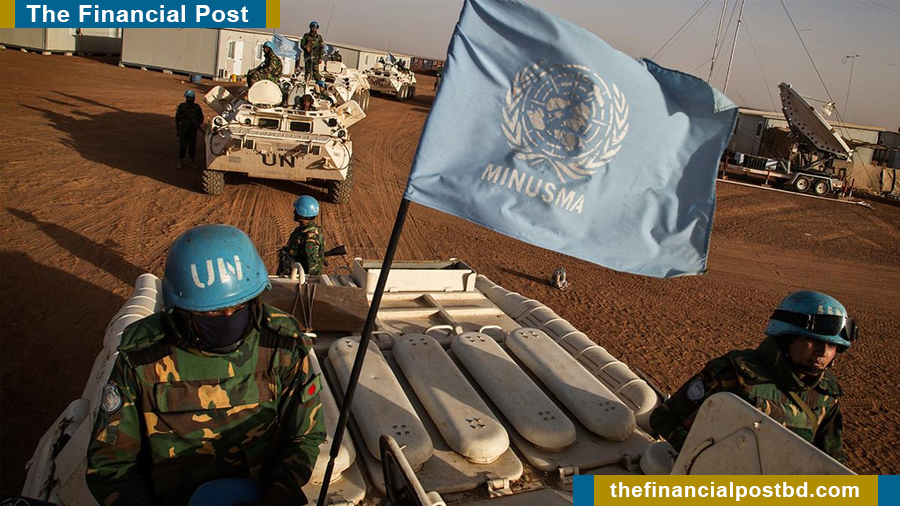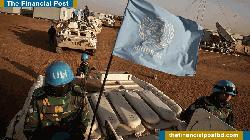The United Nations has decided to reduce its global peacekeeping forces by nearly one-fourth over the next few months, citing severe funding shortages and uncertainty over future contributions from the United States. A senior UN official, speaking to Reuters on condition of anonymity, confirmed the decision — one that could also impact Bangladesh.
According to the official, roughly 25% of military and police personnel, along with their equipment, will be withdrawn from nine peacekeeping missions worldwide. A significant number of civilian staff working under these missions will also be affected. The cuts are expected to affect around 13,000 to 14,000 peacekeepers and a substantial number of civilian employees.
The United States is the largest financial contributor to UN peacekeeping operations, providing more than 26% of the total budget. China is the second-largest donor, contributing about 24%. These contributions are mandatory, not voluntary. However, Washington currently owes the UN around $1.5 billion in unpaid dues, bringing total arrears to over $2.8 billion. UN sources said the U.S. plans to pay $680 million soon, though its mission to the UN has yet to comment.
In August, U.S. President Donald Trump unilaterally canceled approximately $800 million allocated for the UN peacekeeping budget for fiscal years 2024 and 2025. Additionally, the White House budget office has proposed eliminating funding for 2026 as well, citing “ineffectiveness” in missions in Mali, Lebanon, and the Democratic Republic of the Congo.
The cuts will affect peacekeeping missions in South Sudan, the Democratic Republic of the Congo, Lebanon, Kosovo, Cyprus, the Central African Republic, Western Sahara, the UN Disengagement Observer Force in the Golan Heights (between Israel and Syria), and the Abyei region jointly administered by Sudan and South Sudan.
UN Secretary-General António Guterres has also been exploring ways to enhance efficiency and reduce costs as the organization marks its 80th anniversary amid a deepening financial crisis. Experts warn that the reductions could seriously undermine the effectiveness of UN peacekeeping operations worldwide. Critics describe the U.S. funding cuts as a major setback to global peace efforts.
If implemented, the UN decision could have significant implications for Bangladesh — one of the top troop- and police-contributing countries to UN peacekeeping missions. According to UN data as of February 28, Nepal ranked first with 5,350 peacekeepers, including 601 women. Rwanda followed with 5,237 peacekeepers, including 660 women, while Bangladesh ranked third with 5,230 peacekeepers, including 447 women.
Bangladesh joined UN peacekeeping in 1988 by deploying military observers to the Iran–Iraq mission. Over the past 37 years, it has become one of the most respected contributors to global peacekeeping. The Bangladesh Navy and Air Force have been participating since 1993, while Bangladeshi police officers have served in UN missions since 1989 — beginning with the Namibia mission, which marked Bangladesh Police’s formal entry into the UN system.
FP/MI


 Human Chain in Satkhira Demands Justice for Journalist Hayat’s Murder
Human Chain in Satkhira Demands Justice for Journalist Hayat’s Murder
 BSF hands over 16 Bangladeshis to BGB at Satkhira border
BSF hands over 16 Bangladeshis to BGB at Satkhira border
 UN to cut 25% of peacekeepers worldwide; Bangladesh faces possible impact
UN to cut 25% of peacekeepers worldwide; Bangladesh faces possible impact
 Bangalee group calls hartal in Bandarban on 13 Oct
Bangalee group calls hartal in Bandarban on 13 Oct
 Syndicate accused of embezzling state funds under ACC scrutiny
Syndicate accused of embezzling state funds under ACC scrutiny